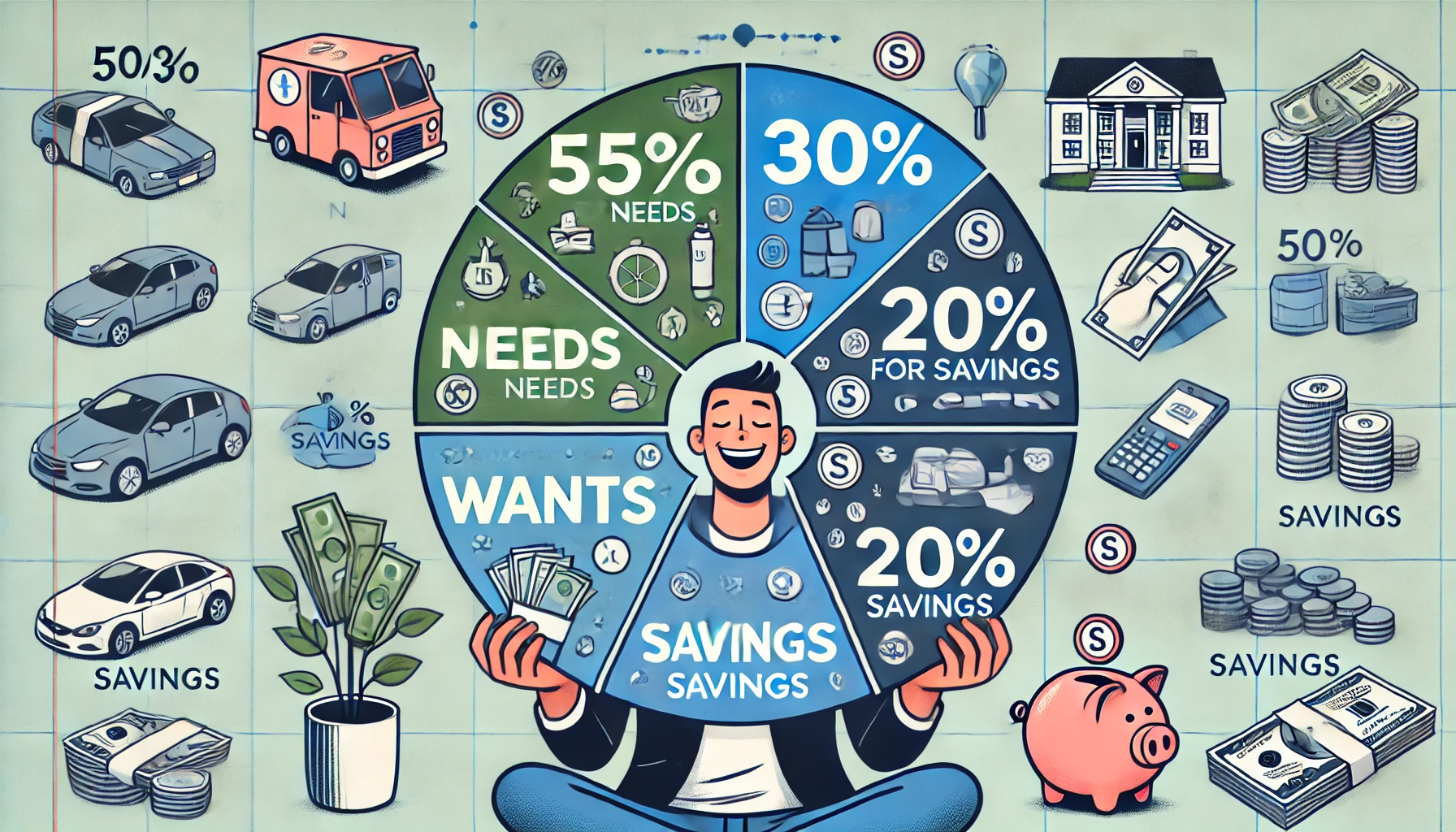Many people struggle with money not because they don’t earn enough, but because they were never taught how to manage it effectively. Without financial education, it’s easy to fall into bad habits like overspending, relying on credit cards, or failing to save for the future. On the other hand, people who understand personal finance tend to make better financial decisions, build wealth over time, and avoid unnecessary stress.
Financial education is the foundation for developing positive money habits that lead to long-term stability and financial freedom. When you learn how to budget, save, invest, and manage debt properly, you take control of your financial future instead of letting money control you. In this article, you’ll discover how financial education shapes your financial habits and why it’s essential for personal and professional success.
Financial Education Helps You Make Smart Spending Decisions
Without financial knowledge, it’s easy to make emotional or impulsive purchases without considering the long-term impact. Financial education teaches you to think critically about your spending, recognize marketing tactics that encourage overspending, and prioritize needs over wants. When you understand how small expenses add up over time, you naturally become more intentional with your money.
A financially educated person is more likely to ask questions before making a purchase: Do I really need this? Does this align with my financial goals? Can I get a better deal elsewhere? This level of awareness helps prevent unnecessary debt and ensures that money is spent in ways that bring true value.
It Encourages Consistent Saving and Investing
Many people struggle to save money because they don’t have a system in place or they believe saving means sacrificing their current lifestyle. Financial education teaches the importance of setting up an emergency fund, automating savings, and taking advantage of compound interest.
When you understand how money grows over time, you see saving not as a burden, but as a tool for future freedom. Instead of spending everything you earn, you develop the habit of paying yourself first—setting aside a percentage of your income for savings and investments before spending on non-essentials.
It Helps You Manage Debt Responsibly
One of the biggest financial traps people fall into is accumulating debt without fully understanding the consequences. Credit cards, personal loans, and buy-now-pay-later schemes can create a cycle of financial stress if not managed correctly. Financial education helps you distinguish between good debt (like a mortgage or student loans) and bad debt (like high-interest credit card balances).
A financially literate person knows how to read loan terms, avoid unnecessary interest payments, and use debt strategically. Instead of relying on borrowed money for daily expenses, they plan purchases carefully, pay off balances in full when possible, and focus on eliminating high-interest debt first.
It Strengthens Budgeting and Financial Planning Skills
Budgeting is one of the most important financial habits, yet many people avoid it because they think it’s restrictive or complicated. Financial education simplifies budgeting by introducing easy-to-follow methods like the 50/30/20 rule or zero-based budgeting. These techniques help you allocate your income wisely, ensuring that all financial needs are met while still allowing for fun and future savings.
Understanding how to budget also makes it easier to plan for irregular expenses, such as car repairs or medical bills, so they don’t disrupt your finances. Instead of being caught off guard, you develop the habit of preparing for both expected and unexpected costs.
It Helps You Set and Achieve Financial Goals
People without financial education often struggle to set realistic financial goals because they don’t fully understand what’s achievable or how to plan effectively. Learning about personal finance teaches you how to set SMART (Specific, Measurable, Achievable, Relevant, and Time-bound) goals, track progress, and adjust as needed.
For example, instead of saying, I want to save money, a financially educated person sets a clear goal like, I will save $5,000 in 12 months by setting aside $417 per month. Having a structured plan makes it easier to stay disciplined and motivated.
It Encourages Long-Term Financial Stability and Wealth Building
Many people focus only on short-term financial concerns, like paying bills or making ends meet, without thinking about long-term financial health. Financial education shifts this mindset by introducing concepts like retirement planning, investing, and passive income.
A person with strong financial knowledge understands the benefits of starting early, taking advantage of employer retirement plans, and diversifying investments. Instead of relying solely on a paycheck, they look for ways to grow their wealth over time through smart financial decisions.
It Increases Confidence in Financial Decision-Making
A lack of financial education often leads to uncertainty and fear when making financial decisions. Many people avoid looking at their bank statements, struggle with financial planning, or feel overwhelmed by investment options. Financial literacy removes this fear by providing the knowledge needed to make informed choices.
When you understand key financial concepts like interest rates, inflation, and risk management, you become more confident in handling money. Instead of guessing or following what others do, you make decisions based on research, logic, and personal financial goals.
It Protects You from Financial Scams and Bad Investments
Scammers and unethical financial schemes target people who lack financial knowledge. Pyramid schemes, get-rich-quick opportunities, and predatory loans often appeal to those who don’t fully understand how money and investments work.
A financially educated person knows how to spot red flags, ask the right questions, and verify financial opportunities before committing. They understand that if something sounds too good to be true, it probably is.
How to Improve Your Financial Education and Develop Better Habits
Becoming financially literate doesn’t require a finance degree—it just takes a commitment to learning and applying new knowledge. Here are some simple ways to improve your financial education:
✅ Read personal finance books like The Total Money Makeover by Dave Ramsey or Rich Dad Poor Dad by Robert Kiyosaki
✅ Follow finance blogs, YouTube channels, and podcasts that teach practical money management skills
✅ Use budgeting apps to track your spending, set savings goals, and manage debt effectively
✅ Take free online courses on topics like investing, credit management, and retirement planning
✅ Talk to financially successful people and learn from their experiences and strategies
Final Thought: Financial Education is the Key to Positive Financial Habits
Good financial habits don’t happen by accident—they are the result of knowledge and intentional action. Financial education empowers you to take control of your money, make smarter decisions, and build a secure future. By continuously learning and applying financial principles, you create a foundation for lifelong financial success.
Start today: Choose one financial concept you want to learn more about and take the first step toward financial freedom!












Leave a Reply